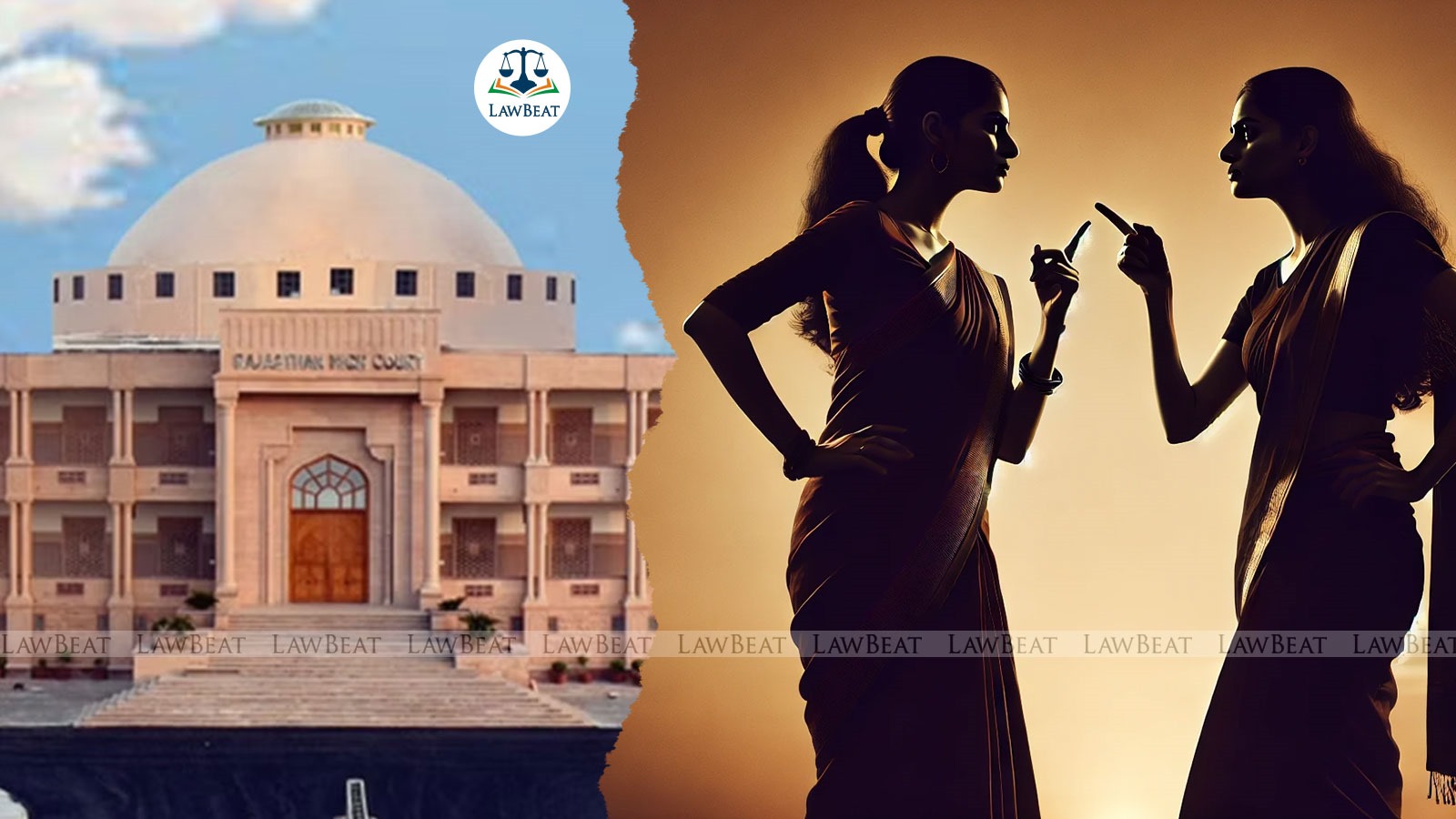Mere Quarrels with Sister-in-Law Do Not Constitute Cruelty : Rajasthan High Court

The court noted that the statements alleging that the sister-in-law poisoned the deceased were made long after the incident and were not corroborated by any direct evidence
The Rajasthan High Court’s Jodhpur bench, recently, dismissed a revision petition challenging the discharge of a woman accused of dowry harassment and abetment to suicide. The court upheld the order of the Additional Sessions Judge, Rajgarh (Churu), which had earlier discharged the accused, Amina, stating that mere quarrels with the deceased sister-in-law do not amount to cruelty for dowry.
The court, presided over by the Single bench of Justice Arun Monga, observed that the quarrels between Amina and Bilkeesh (deceased) were typical familial disputes and did not amount to cruelty under Section 498-A of the Indian Penal Code (IPC).
The case concerns the death of Bilkeesh Bano, who was married to Wahid Hussain. On the night of August 14, 1998, Bilkeesh complained of stomach pain and was taken to the hospital, where she later passed away. An inquiry under Section 174 of the CrPC was conducted by the SDM of Churu, and an FIR was subsequently filed against the accused, Amina, under Sections 498-A (Husband or relative of husband of a woman subjecting her to cruelty) and 302 (murder) of the IPC. The petitioner, Bilkeesh’s father, alleged that Amina had administered poison to his daughter, leading to her death. The case was transferred to the Additional Sessions Judge, Rajgarh, where a criminal case was registered against Amina. However, on August 19, 2002, the Sessions Court discharged Amina from all charges, citing a lack of evidence.
Counsel for the petitioner, Advocate Manvendra Singh and Advocate Saumya Choudhary, contended that the Sessions Court had erred by failing to frame charges against Amina. It was argued that the FIR was grounded in the SDM's inquest findings, which suggested potential dowry harassment and foul play. The petitioners urged the High Court to overturn the discharge order and commence trial proceedings against Amina.
Appearing on behalf of the respondents, Public Prosecutor Gaurav Singh along with Advocate Pradeep Shah, representing the complainant, argued that there was no substantial evidence to support the charges. It was pointed out that the prosecution had not established any demand for dowry or strained relations between Bilkeesh and her husband or mother-in-law. Additionally, it was highlighted that the accusations against Amina were made nearly two years after Bilkeesh’s death.
The court, after examining the case, observed that the prosecution failed to provide any evidence linking Amina to dowry harassment or cruelty. The court noted : “The impugned order (passed by the Sessions Court) is inter alia based on the reasoning that there is no evidence to show that the accused, Amina, harassed Bilkeesh Bano for dowry or treated her cruelly. The prosecution's evidence indicates that Bilkeesh's husband and mother-in-law neither demanded dowry nor had a strained relationship with her. Amina's act of merely having Bilkeesh visit her house and engaging in quarrels does not amount to cruelty for dowry. As for the charges under Sections 306 and 302 IPC, the statements alleging that Amina poisoned Bilkeesh were made nearly two years after the incident and lacked corroboration.”
The court, therefore, concluded that the reasoning of the Sessions Court was consistent with the evidence on record and the applicable law. There was no procedural irregularity or illegality in the lower court's decision that warranted interference by the High Court.
“There was no prima facie evidence linking Amina to Bilkeesh's death by poisoning or instigating her to commit suicide,” the court stated, while dismissing the petition and upholding the order of discharge of Amina under Sections 498-A and 306 IPC.
Cause Title: Ghulam Hussain v State And Anr [S.B. Criminal Revision Petition No. 1130/2002]
